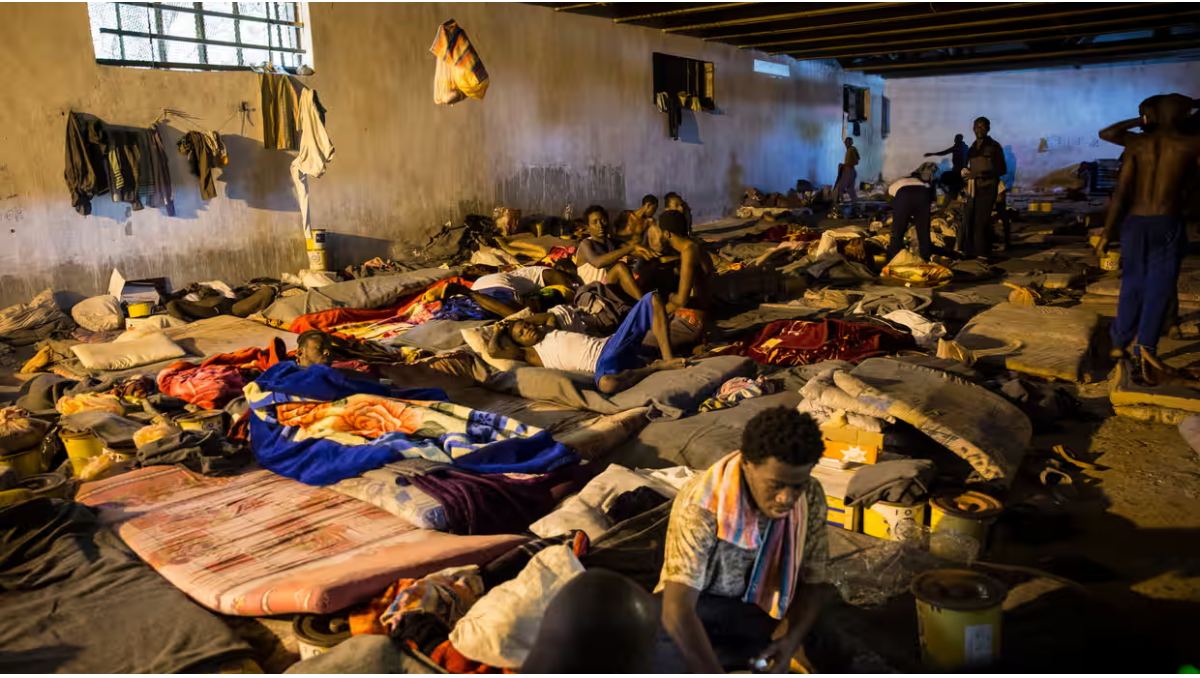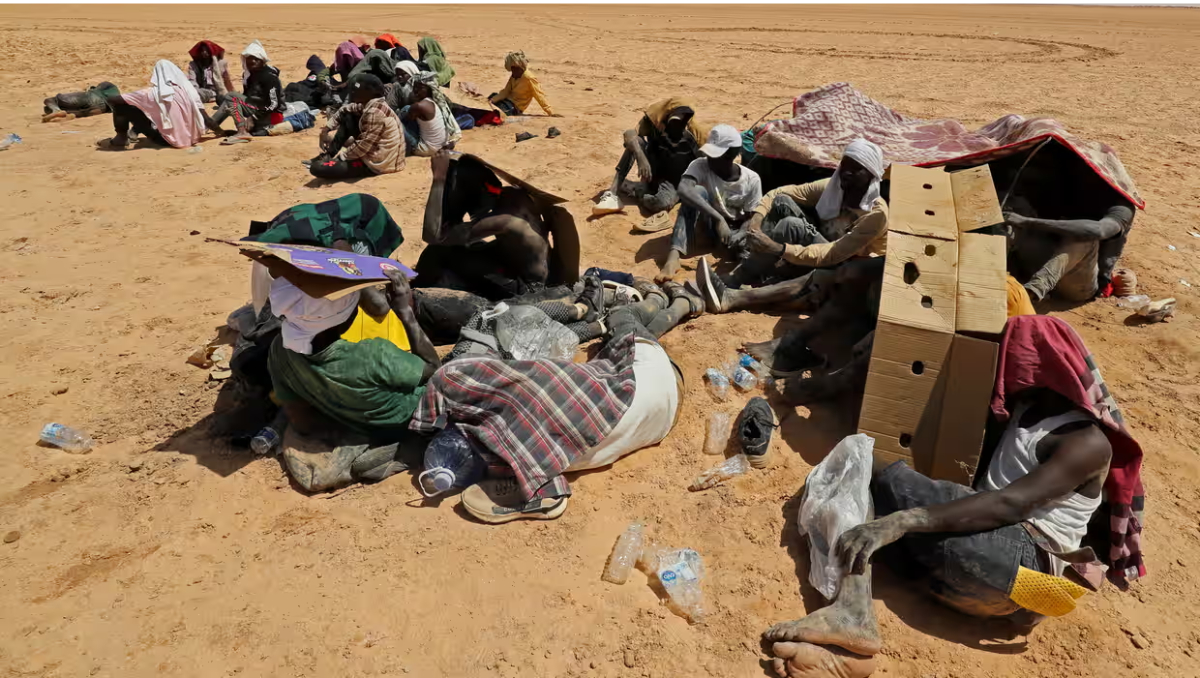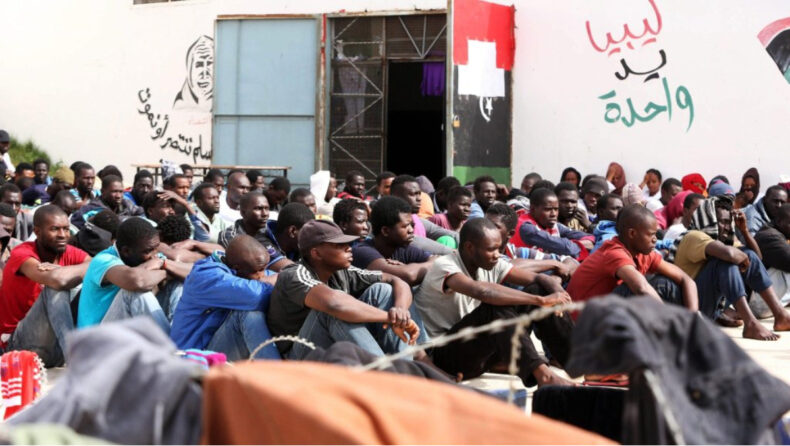A video of a woman lying dead on the floor of a Libyan migrant detention centre has revealed new evidence of the horrific state of refugees in the North-African nation.
Table of Contents
30 seconds of horror
The Guardian has claimed to have obtained footage from a group making their way into Tunisia from Libya, where they were detained two weeks ago in the Abu Salim detention centre in Tripoli, the Libyan capital.
In the graphic video, a Nigerian woman walked around a room in the facility with female asylum seekers on mattresses littered across the floor, crying out for help and comparing the scenes to that of a “prison”. The 30-second video ended with the video-taker walking over an unclothed, malnourished woman with her eyes open, revealing that she died that morning.
The video’s authenticity and the confirmation of the location has been verified by humanitarian group Médecins Sans Frontières (MSF) and an unnamed source from the United Nations, with the former, along with various other NGOs, having reported several instances of brutal violence meted against detainees. In June 2021, MSF gave an account of automatic weapons being fired at the refugees, resulting in multiple casualties, prompting MSF to announce the end of it’s medical activities in Tripoli by the end of this year, citing “access issues”.
The cause of death for the woman in the video, identified as Somalian, has been attributed to tuberculosis by the UN source, a disease causing rampage across the ranks of detained refugees at Abu Salim. Lack of proper access to medical care has led to the ill having no choice but to deteriorate on their beds in crowded rooms, according to aid workers deployed at the facility.
Escape is possible, but the slim ray of hope is reserved only for the affluent, as a ransom of $1000 is demanded from every detainee, according to Ibrahim, a man from Sierra Leone who was held at Abu Salim. A fellow female asylum seeker from Sierra Leone also confirmed the same, revealing that a ransom is the only way out of the “hell” that is Abu Salim.
Vincent Cochetel, the special envoy for the UN refugee agency for the western and central Mediterranean commented on the lack of improvement in conditions of detention in Libya, calling for “efforts to end arbitrary detention”. A Libyan organisation called Refugees in Libya has announced the beginning of an investigation into the identity of the dead woman in the video. Citing difficulties in gathering information inside these camps due to hesitation from victims and eyewitnesses, the organisation identified “special attention” as a way to gain their support.

Sexual abuse, open fire: the reality for African refugees
While Libyan authorities have communicated their intents to clamp down on DCIM (directorate for combating illegal migration) centres, Amnesty International has reported that cases of human rights violations have continued in reopened or newly opened centres, where thousands of migrants and refugees are subjected to severe beatings, sexual violence, extortion and forced labour, as documented by aid workers.
The Libyan coast has been a hotbed for migrants from Africa and other regions attempting to cross the Mediterranean and reach Europe, only for the EU-backed Libyan coastguard to apprehend them and send them to detention centres like Abu Salim.
A 2021 report from Amnesty International alleged that guards coerced women into sex in exchange for water and shot at detainees. A UN human rights council report in the same year came to the conclusion that conditions in Libyan migrant facilities amount to potential crimes against humanity.
Possible ray of hope in Tunisia?
Given the harrowing state of affairs in Libyan detention centres, escapees have turned to Tunisia, a neighbouring country of Libya, from where a new way of crossing into Europe has materialised. However, matters are far from improved, with the EU and Tunisia shaking hands over a 1 billion euro deal to address irregular migration in July.

Additionally, Tunisia has been accused of forcing hundreds of sub-Saharan African people near the border with Libya, stranded without food, water and shelter in the desert, leaving them powerless against eventual re-detention by Libyan forces, who send them back to DCIM centres.













